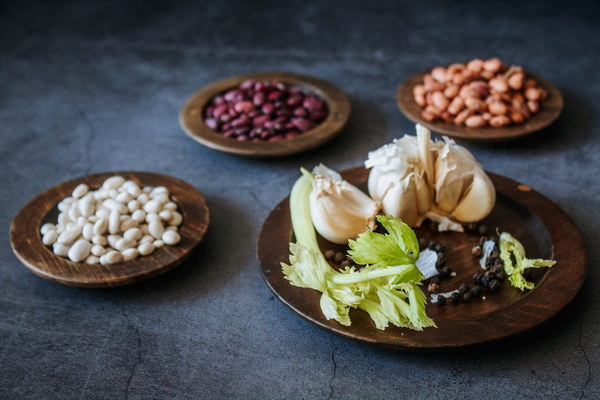Nurturing Your Stomach and Spleen Effective Strategies for Treating Stomach Cold
Introduction:
Gastric cold, or stomach cold, is a common condition characterized by discomfort, bloating, and pain in the stomach. It is often caused by factors such as overeating, consuming cold foods, or exposure to cold temperatures. To alleviate the symptoms and maintain a healthy stomach and spleen, it is essential to adopt proper dietary and lifestyle habits. In this article, we will explore effective strategies for nurturing your stomach and spleen when dealing with gastric cold.
1. Diet:
A balanced diet plays a crucial role in maintaining a healthy stomach and spleen. Here are some recommendations for your diet:
a. Increase the intake of warm and easily digestible foods: Foods like rice, noodles, and porridge are gentle on the stomach and spleen, providing warmth and energy.
b. Consume more ginger and cinnamon: These spices have warming properties that help alleviate the symptoms of gastric cold. Add them to your meals or prepare ginger tea.
c. Avoid cold, raw, and hard-to-digest foods: Cold foods, such as ice cream, cold drinks, and raw vegetables, can exacerbate the symptoms of gastric cold. Instead, opt for steamed or cooked vegetables.
d. Reduce the intake of spicy, greasy, and heavy foods: These foods can overload the stomach and spleen, leading to discomfort and bloating.
2. Lifestyle:
A healthy lifestyle can significantly improve your stomach and spleen function. Consider the following tips:
a. Regular exercise: Engaging in moderate exercise, such as walking, cycling, or yoga, can enhance digestion and improve blood circulation.
b. Adequate rest: Ensure you get enough sleep to allow your body to recover and rejuvenate. Avoid staying up late, as it can weaken your stomach and spleen.
c. Manage stress: Chronic stress can harm your stomach and spleen. Practice relaxation techniques, such as meditation, deep breathing, or mindfulness, to reduce stress levels.
3. Acupuncture and herbal remedies:
Acupuncture and herbal remedies can provide relief for gastric cold symptoms. Consult with a qualified practitioner who can tailor a treatment plan for your specific needs.
4. Regular check-ups:
Regular visits to your healthcare provider can help identify potential underlying causes of your gastric cold and ensure you receive appropriate treatment.

Conclusion:
Treating gastric cold and nurturing your stomach and spleen requires a combination of dietary adjustments, lifestyle changes, and, if necessary, medical intervention. By adopting the strategies outlined in this article, you can alleviate the symptoms of gastric cold and promote a healthy digestive system. Remember, maintaining a balanced diet, managing stress, and engaging in regular exercise are key factors in ensuring your stomach and spleen remain robust and healthy.









